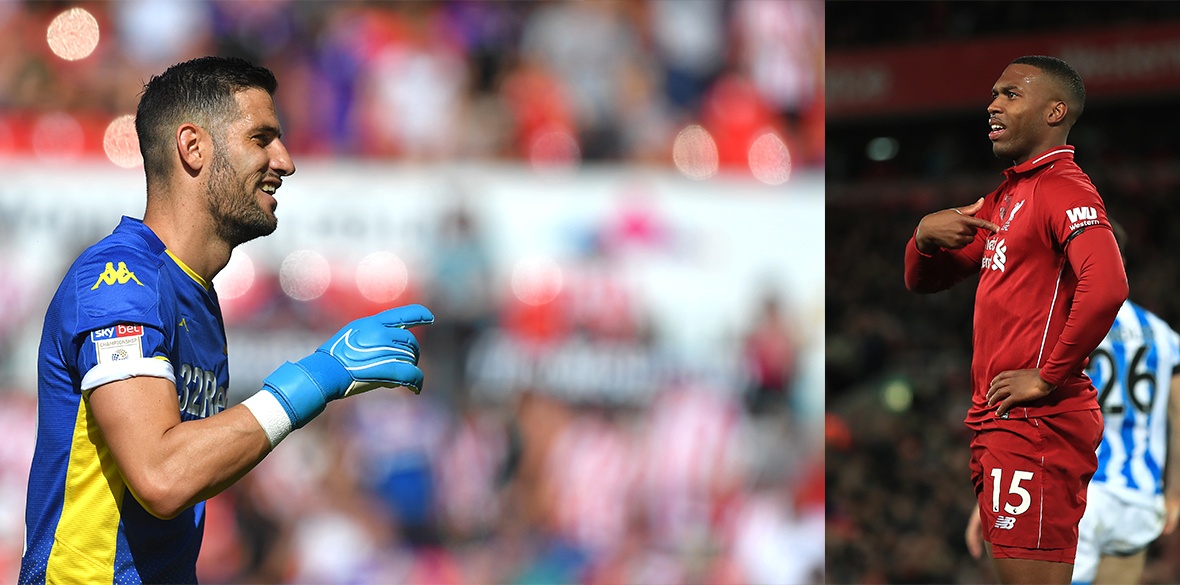This is the last article you can read this month
You can read more article this month
You can read more articles this month
Sorry your limit is up for this month
Reset on:
Please help support the Morning Star by subscribing here
FOOTBALL finds itself in a precarious position at the moment.
The coronavirus has caused leagues across the globe to postpone fixtures, while others are playing games behind closed doors in an attempt to stop the virus from spreading.
With this summer seeing both the European Championships, which will be played across multiple cities and countries, as well as the Olympics, millions of fans will congregate in areas to support their nation — causing fear that the virus will continue to spread if it hasn’t been contained and eliminated by the summer.
With all that going on, other off the field issues have gone under the radar to some degree and as always, racism in football has reared its ugly head but hasn’t quite received as much attention as it usually does — or perhaps people just don’t seem to care about tackling the issue.
It’s best to start in the incident in Portugal at the start of last month.
FC Porto striker Moussa Marega was racially abused by opposing Vitoria fans from the start of the game to the minute he voluntarily subbed himself off, the abuse becoming too much.
When he gave his side the lead, he pointed to the colour of his skin as a gesture to the vile fans in the stands, it earned him a booking from the referee because of course it would.
What followed were some of the most disappointing scenes on the pitch we have seen in quite some time.
Marega tried to leave the field, his teammates attempting to restrain him from doing so, and as he headed down the tunnel he gave supporters the middle finger as a final gesture.
“To those idiots that go to the stadium to shout racist insults, go fuck yourselves,” Marega said.
“I’m also grateful to the ref for not defending me and for giving me a yellow card for defending my skin colour.
“I hope I never see you on a pitch again. You’re a disgrace.”
Marega isn’t the first player to be punished for calling out racism. Given all the attention racism in football has received, from players and lawmakers to the media, it was bewildering to see the referee handle the situation the way he did.
There was no three-step protocol in play, no attempt from either set of players to try and plead with the racist fans to stop the monkey chants.
The Porto players were more concerned with fighting with Marega instead of showing solidarity with their teammate.
This wasn’t the case in Germany at the end of the month.
In a game between Bayern Munich and Hoffenheim, in which away side Munich were six goals up, their fans unfurled a banner which read “Dietmarr Hopp: Son of a Bitch.”
Hopp is a German billionaire and the chief financial backer of the Sinsheim-based club.
What happened next was quite extraordinary.
Both sets of players and managers pleaded with the fans to take down the banner, and they did, only to bring out another one with basically the same message.
Seeing this, the referee stopped the game and led the players down the tunnel.
The game was suspended for 20 minutes.
When the game resumed, both teams aimlessly passed the ball among each other in “solidarity with Hopp.”
Football showed that when a billionaire owner is abused, not racially must I add, that it will come together and stamp out such a disgusting act.
No-one wants to be called what Hopp was, but as many fans, journalists and pundits across social media pointed out: “Where was this type of reaction when players are racially abused?”
Granted, one case was in Germany and another was in Portugal, but the question has to be asked.
For context, Hopp doesn’t have many supporters across Bundesliga fans.
In 2007, Mainz director Heidel criticised Hoffenheim’s place in the Bundesliga.
In response, Hopp compared this criticism to racial discrimination and demanded equal punishment.
German football’s response to tackling racism and hurtful comments towards board members is not good.
Again, at the start of last month, Hertha Berlin’s Jordan Torunarigha was racially abused by Schalke fans.
As the game went on, so did the abuse, and Torunarigha was later sent off for his reaction after being pushed into Schalke coach David Wagner. As he got up, he up threw a crate of water to the ground, thus “earning” himself a second yellow card.
Then-Hertha coach Jurgen Klinsmann said: “Before extra-time, Jordan informed us that he was racially abused. I feel sorry for Jordan. You just don’t do that.
“We tried to calm him down, we asked the referee to protect the player and when this foul came you must show sympathy for his situation. But the opposite was the case.”
What makes this even more interesting is that Schalke’s chairman Clemens Toennies was forced to step down from the position for three months in August 2019 after saying that more power stations should be built in Africa instead of increasing taxes to protect the environment.
“Then the Africans would stop cutting down trees and producing babies when it is dark,” the 63-year-old added.
After all of this, the racist abuse Torunarigha suffered from Schalke fans, the racist comment from their chairman and the abuse aimed at Hopp, Schalke introduced a “one-step plan” to combat all forms of hate, violence and discrimination.
“Should there be any such occurrences in the Veltines Arena next Tuesday (March 3) in the cup game against FC Bayern Munich, in the game against TSG Hoffenheim (March 7) or in future games, our team will leave the field — regardless of playing time, the result or any consequences,” said a statement.
They do realise Toennies is back in his role after receiving a light tap on his wrist for racist comments.
German football has told the rest of the world where it stands on black players being racially abused and rich white people being called names, the latter will be investigated while the latter will not be tolerated.
Which brings me on nicely to the last seven days in England.
Last week, Leeds goalkeeper Kiko Casilla was handed an eight-game suspension and £60,000 fine for racially abusing Charlton Athletic’s Jonathan Leko.
In Casilla’s defence, he said that he was “unaware of the existence” if the term he used and that he only found out what he meant when he was interviewed a whole month later.
The investigation “accepted” that Casilla “is not a racist” and that the language “was wholly out of character” which is great for them, but they then banned him for using racist language so what is it? Is he a racist or is he not?
Fast forward a few days and former Liverpool striker Daniel Sturridge was banned for four months and handed a hefty £150,000 fine for maybe telling a family member he was moving to a new team.
Initially, he was handed a six-week ban last summer, four of them suspended, and a £75,000 fine. But the Football Association appealed the punishment — because how dare such a flimsy penalty be handed down.
In a video posted to YouTube, Sturridge said that he is “going to continue to campaign for professional footballers to be able to speak to their families and close friends freely, without the real risk of being charged. I feel the betting companies and the practice and process of people placing bets on players moving clubs has to be stopped.”
But what he said next was, for me, the most important.
“Although the appeal panel had recognised that I hadn’t bet, nobody else had bet, I was still charged, so it was very disappointing and upsetting for me to hear the news that the appeal panel had overturned the original, highly qualified panel’s ruling.”
So there was no bet. No-one profited from the news that Sturridge was leaving Liverpool, which the club had made quite clear when they said they would not be giving him a new deal in the summer, to a host of rumoured clubs.
I get why the FA betting rule is in place.
Players know where they are moving to, they could quite easily tell a family member to put a large bet down and net a handsome pay-out for what would allegedly be insider trading.
However, this leads to players basically lying to those close to them when Sky Sports, other media outlets and betting companies are playing guess-who in terms of where a player will be sold to.
But I digress.
Look at the two punishments.
An eight-game ban and £60,000 fine for racially abusing a player and a four month ban and £150,000 for breaching betting rules despite no bet actually being placed.
And even if it was, in what world is betting a more heinous crime than racism?
Once again, the FA has made it clear where their priorities stand.
And people wonder why racism in football shows no sign of relenting.
 Kadeem Simmonds
Kadeem Simmonds






